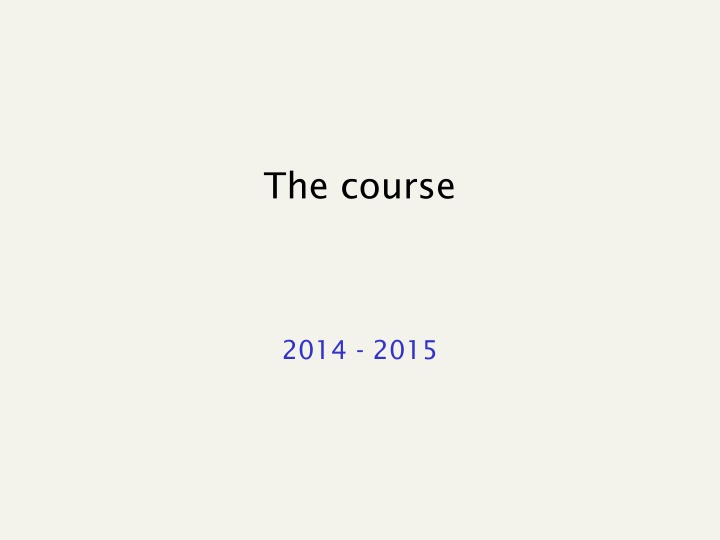
Efficient Solutions for Dictionary Search and Web Collection Compression Projects
Explore two projects - Dictionary search with 1 error and Compressing a large web collection - focusing on efficient search algorithms and clustering strategies. Learn about indexing misspelled keywords and optimizing text compression for search engines. The projects involve implementing code solutions, profiling, and measuring time/space efficiency using provided datasets and libraries.
Uploaded on | 0 Views
Download Presentation

Please find below an Image/Link to download the presentation.
The content on the website is provided AS IS for your information and personal use only. It may not be sold, licensed, or shared on other websites without obtaining consent from the author. If you encounter any issues during the download, it is possible that the publisher has removed the file from their server.
You are allowed to download the files provided on this website for personal or commercial use, subject to the condition that they are used lawfully. All files are the property of their respective owners.
The content on the website is provided AS IS for your information and personal use only. It may not be sold, licensed, or shared on other websites without obtaining consent from the author.
E N D
Presentation Transcript
The course 2014 - 2015
(suggested by Yahoo! Research, Barcelona) Project #1: Dictionary search with 1 error The problem consists of building a data structure to index a large dictionary of strings of variable length that supports efficient search with edit-distance at most one. This problem has important applications in correcting misspelled keywords in search engine queries. The project consists of designing and implementing a solution based on one/more of libraries below in which the strings to be indexed are the queries in dataset. Then, the goal is to execute a serie of queries sampled from the provided dataset and possibly changed in one character (per query) in order to simulate misspells. The students have to profile and optimize their code and provide measurements of its time/space efficiency
(suggested by Yahoo! Research, Barcelona) Project #1: Dictionary search with 1 error Datasets MSN Query Logs (2006 and 2007). [14M and 100M queries]. Software and Libraries Compressed Permuterm Index Succinct Data Structure Library Ternary Search Tree Minimal Perfect Hashing References D. Belazzougui, R. Venturini: Compressed String Dictionary Look-Up with Edit Distance One. CPM 280-292, 2012. I. Chegrane, D. Belazzougui: Simple, compact and robust approximate string dictionary. CoRR abs/1312.4678, 2013.
(suggested by Tiscali, Pisa) Project #2: Compressing a large web collection The problem consists of grouping Web pages and then compressing each group individually via Lzma2 compressor. The goal is to find the grouping strategy that minimizes the achieved compression. This problem has important applications in storage of text collections in search engines. The project consists of designing and implementing an efficient clustering solution which can scale to Million of pages. Then, the goal is to test the proposed solution on the provided dataset by measuring the compressed space with Lzma2, and the overall time to compress the whole dataset. The students have to profile and optimize their code and provide measurements of its time/space efficiency. As a baseline for comparison the students can compare their solution with the one that sort Web pages by their URLs.
(suggested by Tiscali, Pisa) Project #2: Compressing a large web collection Datasets Gov2 crawl - 25M Web pages. 81 Gb gzipped. Software and Libraries Lzma2 compressor - http://www.7-zip.org/sdk.html Sorting large datasets: Unix sort or STXXL (http://stxxl.sourceforge.net/) Library for LSH implementation and shingling Weka - implements k-means and k-means++ References few P. Ferragina, G. Manzini: On compressing the textual web. ACM WSDM, 391-400, 2010.
10 Lectures Lez 1. Trie + Ternary Search Tree - Rossano Lez 2. Rank/Select + Succinct tree encodings - Rossano Lez 3. FMI + SA (no construction) - Paolo Lez 4. q-grammi + (compr) permuterm + (min-)perfect hash - Paolo Lez 5. Discussion on the project #1 Rossano Lez 6. Sorting and Permuting - Paolo Lez 7. Shingling, Min-Hash and LSH - Paolo Lez 8. Clustering - Paolo Lez. 9. Compressors LZ77 and Lzma - Rossano Lez 10. Discussion on the project #2 - Paolo
The exam It consists of three parts: Project 70% Written/oral test 20% Project presentation 10%
